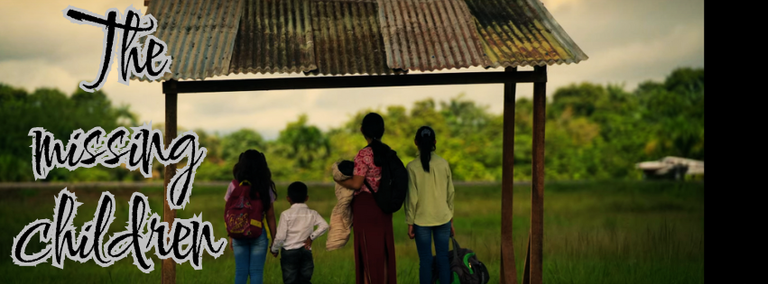
Este no es un documental cualquiera, pues se trata del rescate de 4 niños perdidos en la Amazonia Colombiana, luego de que la avioneta que abordaron junto con su madre y un líder indígena, se estrellara en medio de esta tupida selva.
Como en situaciones similares, el gobierno se avocó a las labores de rescate, enviando las comisiones del ejército preparadas para estas labores de búsqueda y rastreo, aunque en algún momento tuvieron que reconocer que solos no iban a poder.
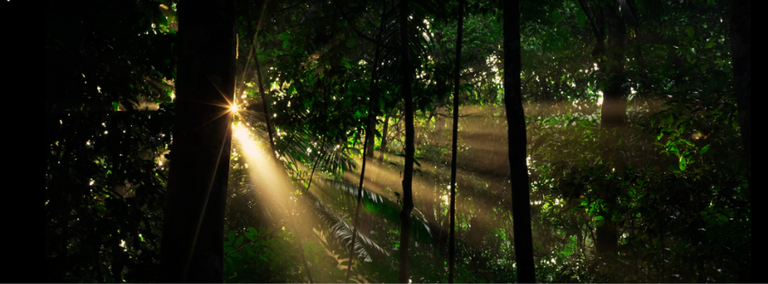
Este documental nos cuenta sobre los milagros de este proceso, pues no solo se trata de rescatar a los niños, sino también rescatar aquello que nos hace humanos, y sobre todo, que entendamos que todos somos merecedores de respeto.
Al principio la historia empieza un tanto lenta, generando ansiedad al espectador quien desea que la búsqueda sea más expedita, pero a medida que vamos conociendo a los protagonistas de la historia, el tiempo se pasa rapidísimo.
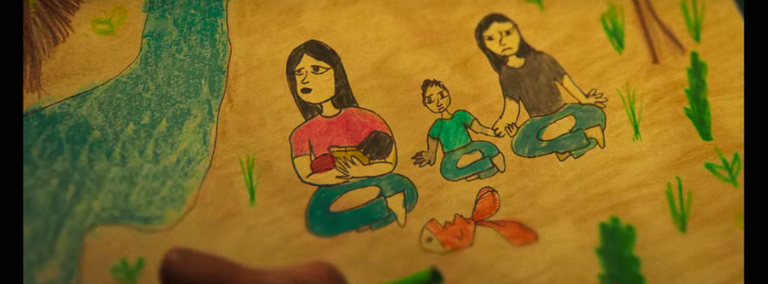
En algún punto, las estrategias militares fueron insuficientes y es cuando entra la guardia indígena y los rescatistas voluntarios también miembros de los asentamientos del lugar, quienes aportaron su conocimiento de la selva.
Fueron 40 días de búsqueda, frustraciones, rituales y autodescubrimientos de muchos de los que participaron en el rescate. Ver como los militares se "quebraban" ante la impotencia de no encontrarlos, los expone como seres humanos sensibles a pesar de su entrenamiento para dejar atrás los sentimientos.
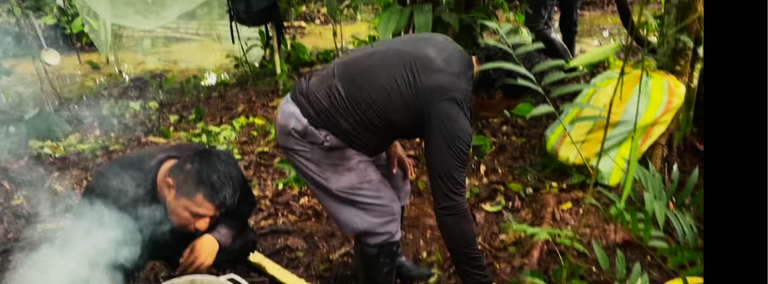
En este caso, los protagonistas no son los niños, sino las historias detrás de los rescatistas que se involucraron, y el cómo su evolución como humanos fue la que hizo posible trabajar en colaboración con aquellos que por razones culturales siempre han considerado como enemigos.
Encontrarlos era la finalidad, pero también la excusa del director para mostrar la evolución de esos hombres que se adentraron a la selva para también encontrarse a si mismos.
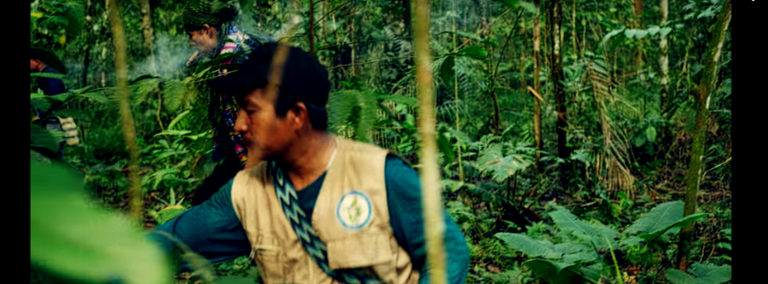
Parece mentira cuando el chamán del grupo nos habla sobre la fuerza de la naturaleza, y el cómo hay una conexión entre los aborígenes y sus tierras, aunque eso es al final la pieza clave que termina por indicarles a donde se encontraban los infantes, quienes al ver a sus rescatistas se notaban asustados, pero también con un desgaste físico y emocional extremo para unos pequeños que oscilaban entre los 13 años y los 12 meses de edad.
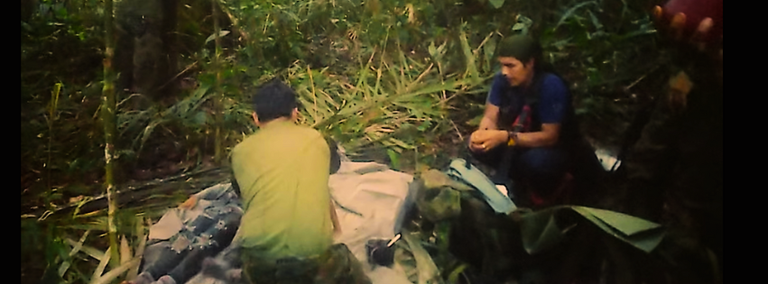
El clímax emotivo que se genera con el testimonio de uno de los voluntarios rescatistas sobre el momento cuando encuentran a los niños, y que hace que la piel se erice, sobre todo porque de niño él también estuvo perdido en la selva, pero en su caso secuestrado por los paramilitares, viviendo en ese submundo por 4 años en los que aprendió a conocer la selva como parte del entrenamiento para sobrevivir.
Los testimoniales de las mujeres cercanas a los niños, le dan ese toque maternal, cumpliéndose a cabalidad las palabras del poeta Andrés Eloy Blanco cuando dice que "cuando se tiene un hijo, se tienen tantos niños que la calle se llena", pues aunque no salieron de sus vientres, era la madre hablando a través de su hermana, la abuela y la maestra de los niños.
Un documental con final agridulce, que nos muestra lo efímera que puede ser la vida, pero también, la importancia que tiene el valor de ella en cada uno de nosotros, sin importar status, razas, credos ni edades.
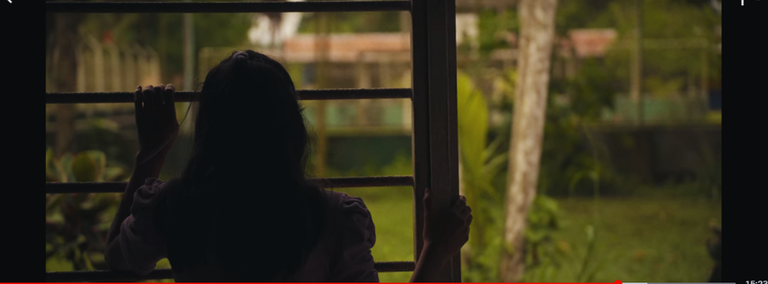

This is not just any documentary, as it is about the rescue of 4 children lost in the Colombian Amazon, after the small plane they boarded along with their mother and an indigenous leader, crashed in the middle of this dense jungle.
As in similar situations, the government was engaged in the rescue efforts, sending the army commissions prepared for this search and tracking work, although at some point they had to recognize that alone they could not be able to.

This documentary tells us about the miracles of this process, because it is not only about rescuing the children, but also about rescuing what makes us human, and above all, that we understand that we are all worthy of respect.
At the beginning the story starts a little slow, generating anxiety to the viewer who wants the search to be more expeditious, but as we get to know the protagonists of the story, time passes very quickly.

At some point, the military strategies were insufficient and that is when the indigenous guard and the volunteer rescuers, also members of the local settlements, came in and contributed with their knowledge of the jungle.
It took 40 days of searching, frustrations, rituals and self-discovery for many of those who participated in the rescue. Watching the military “break down” at the helplessness of not finding them, exposes them as sensitive human beings despite their training to leave feelings behind.

In this case, the protagonists are not the children, but the stories behind the rescuers who got involved, and how their evolution as humans was what made it possible to work collaboratively with those who for cultural reasons they have always considered enemies.
Finding them was the purpose, but also the director's excuse to show the evolution of those men who went into the jungle to also find themselves.

It seems unbelievable when the shaman of the group tells us about the power of nature, and how there is a connection between the aborigines and their land, although this is the key piece that ends up indicating where the infants were, who upon seeing their rescuers were scared, but also with extreme physical and emotional exhaustion for children ranging between 13 years and 12 months of age.

The emotional climax that is generated with the testimony of one of the rescue volunteers about the moment when they find the children, and that makes the skin crawl, especially because as a child he was also lost in the jungle, but in his case kidnapped by paramilitaries, living in that underworld for 4 years in which he learned to know the jungle as part of the training to survive.
The testimonies of the women close to the children, give it that maternal touch, fulfilling the words of the poet Andrés Eloy Blanco when he says that “when you have a child, you have so many children that the street is full”, because although they did not come out of their wombs, it was the mother speaking through her sister, the grandmother and the children's teacher.
A documentary with a bittersweet ending, which shows us how ephemeral life can be, but also how important the value of life is for each one of us, regardless of status, race, creed or age.

Foto/Photo by: screenshots from the documentary on Netflix
Edición/Edited by @mamaemigrante using canva
Tattooworld animated banner
Translated and formatted with Hive Translator by @noakmilo.
